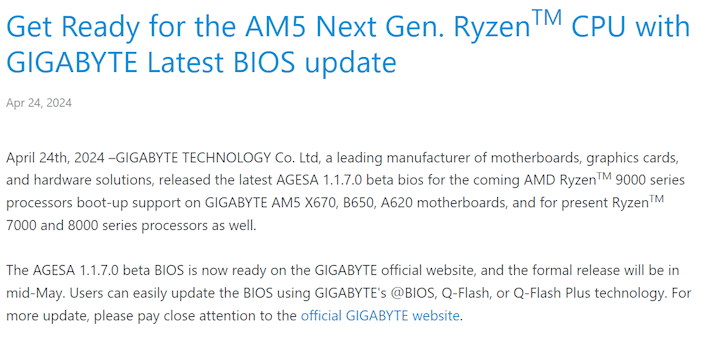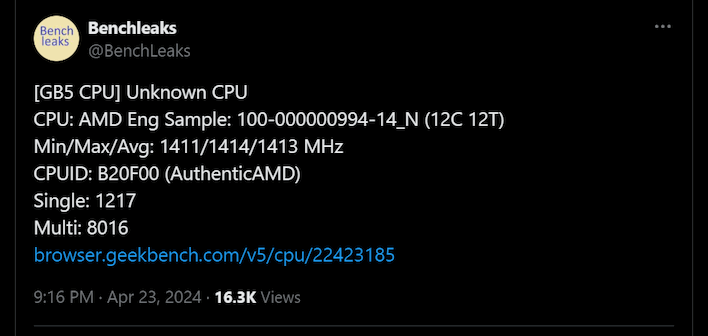Gigabyte Confirms Ryzen 9000 Branding As Strix Point Makes Early Benchmark Cameos
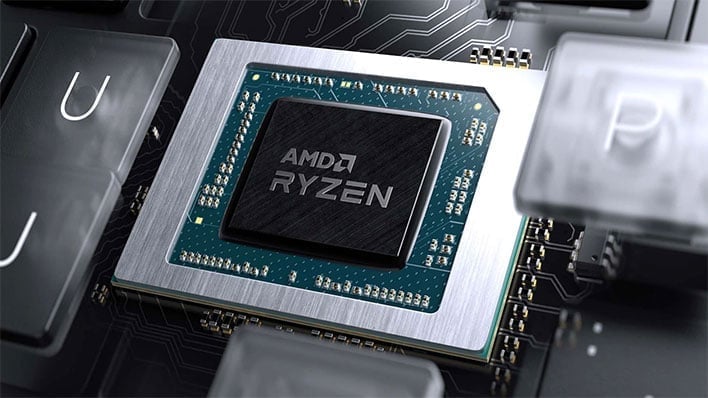
There has been some debate over what exactly AMD will call its next-generation desktop CPU family. The previous generation—the extant series—was called the Ryzen 7000 series, so clearly the next will be the 8000 series, right? Well, no, actually. AMD has typically skipped a number when introducing a new CPU architecture: Zen 2 came with the Ryzen 3000 series, Zen 3 came with the Ryzen 5000 series, and then Zen 4 arrived with the Ryzen 7000 series. More than that, there are already processors in the Ryzen 8000 family; that's the Ryzen 8000G series of APUs based on mobile silicon.
If those arguments aren't convincing enough for you, how about this: Gigabyte just posted a message on its website noting that its socket AM5 motherboards already have support for the "coming AMD Ryzen 9000 series processors" with the latest beta BIOS updates. That pretty much cinches it in favor of the "Ryzen 9000" name.
Notably, Gigabyte indicates that these BIOSes also support the Ryzen 7000 and 8000 processors, which is nice, and not necessarily a given considering the history of CPU support for AMD motherboard BIOS updates. Gigabyte says that the formal release for these beta updates will be in mid-May. You don't say.
As if we needed more evidence that Zen 5 was looming near, we have no less than two fresh leaks of what appear to be Strix Point processors from AMD. If you don't know, Strix Point is the codename for AMD's upcoming mainstream mobile processors, offering up to twelve Zen 5 CPU cores and an RDNA 3.5 integrated GPU.
One of the leaks originates with the ever-watchful BenchLeaks bot, who spotted an "AMD Eng Sample: 100-000000994-14_N" in a Geekbench result. It's difficult to glean much of interest from the specifications in the Geekbench listing itself because the benchmark appears to be running inside of a virtual machine and this is an engineering sample besides, with a low 2-GHz clock rate and odd 12-core, 12-thread configuration. So saying, it's an interesting data point but perhaps not a particularly meaningful one.
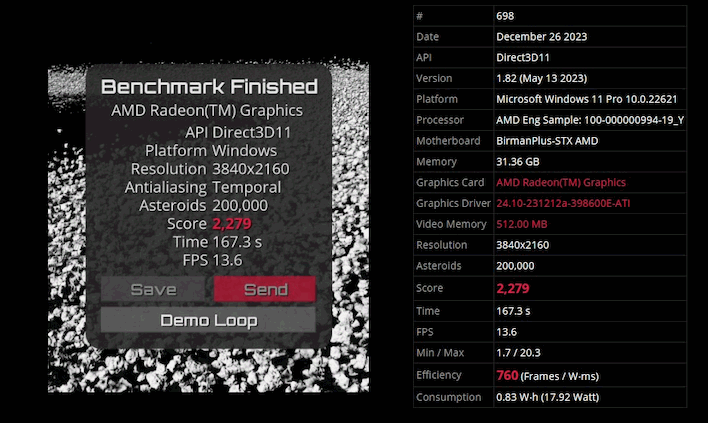
The other leak was spotted by 포시포시, likely better known by their Xwitter handle @harukaze5719 in English-speaking spaces. The self-professed "PC tech fan" pointed out a "100-000000994-19_Y" processor, also marked as "BirmanPlus-STX", in the GravityMark GPU benchmark database. There's really not much to go on in the listing; we can see that the fledgling AMD CPU is in a machine with 32GB of RAM and that it was able to successfully complete the GravityMark benchmark in 4K resolution at an average frame rate of 13.6 FPS.
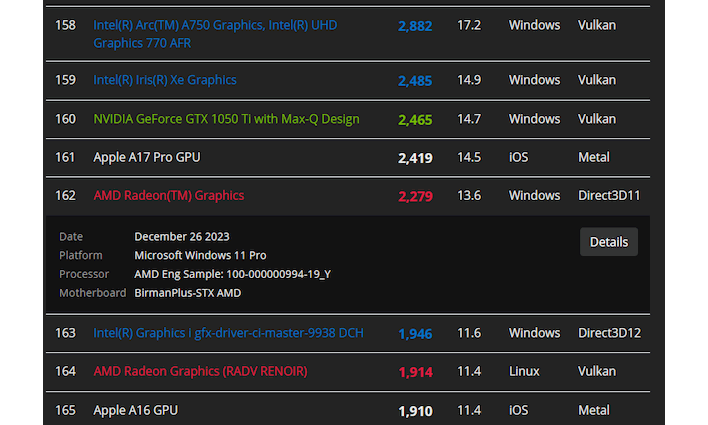
This and above images: @harukaze5719 on Xwitter
That's not many FPS, but keep in mind we're talking about a pre-release integrated GPU running a demanding benchmark in 4K resolution; frankly, the fact that it completes the benchmark at all is pretty good. 포시포시 took it upon themselves to check where this result fell in the listings, and it appears to land just behind an Apple A17 Pro and a mobile GeForce GTX 1050 Ti. Not bad for engineering sample hardware on early drivers.
So there's still no interesting performance results yet, neither for Zen 5 nor RDNA 3.5, but hopefully someone gets ahold of one of those "Strix Halo" processors and leaks a benchmark or two soon. We're dying to know how that product performs. Stay tuned for more news on AMD's upcoming chips, because we'll be reporting it as soon as we get it.

